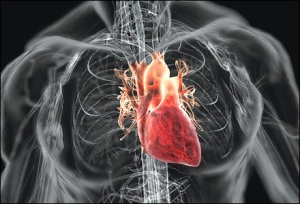Fibrocystic breasts (also called cystic mastitis) is a common concern for pre-menopausal women and indicates palpable breast lumps that are non-cancerous and can be quite painful, especially when breasts become swollen premenstrually. Symptoms often disappear after menopause. A cyst is a fluid-filled sac that may feel firm or grape-like to the touch, is usually mobile with distinct borders. Cyst formation is influenced by lymphatic drainage and estrogen-sensitivity:
- Improper lymphatic fluid drainage within the breast can cause the excess fluid to be encapsulated by fibrous tissue.
- Breast tissue is sensitive to estrogen which stimulates tissue growth, and if overstimulated by estrogen (either produced by the body or ingested), there can be increased swelling and growth of fibrous tissue.
Coffee and caffeine, excess estrogens, insufficient anti-inflammatory fats, and excess weight are major influences on breast cysts and breast tenderness.
- Coffee is estrogenic and best avoided if fibrocystic breasts are a concern.
- Caffeine consumption causes magnesium to be excreted by the body and can be a factor in fibrous breast cysts as well as contributing to osteoporosis, restless leg syndrome, urinary tract infections, and high blood pressure. Caffeine is found in: soda, black tea, chocolate, pain medications like Excedrin and Midol, and decaffeinated coffee (it’s true!). Green tea has caffeine but also contains L-theanine which modifies the effects of caffeine on the body, and may be well tolerated.
- Excess estrogens are due to hormonal imbalances (e.g. insufficient progesterone &/or excess cortisol) as well as ingestion of estrogens from the environment. Requesting a salivary hormone panel from your Naturopathic Doctor will help to determine hormone imbalances. Avoidance of plastics, pesticides and herbicides, dryer sheets, and fragrances (perfumes, cleaning products, laundry detergents) help to decrease the amount of estrogen ingested.
- Anti-inflammatory fats can aid in decreasing pain and swelling of breasts and include supplementing with Evening Primrose, Borage, or Echium oil.
- Excess weight is often accompanied by estrogen excess, inflammation, and poor lymphatic drainage. Daily cardiovascular exercise, a diet rich in vegetables, fruit, whole grains, and lean protein, and counselling or coaching if needed will help maintain a healthy body weight, balance hormones, decrease inflammation, and encourage lymphatic drainage and circulation.
Consult your physician if you notice lumps that don’t change with your menstrual cycle, discharge from your nipple, redness with swelling, severe breast pain, or dimpling or puckering of breast skin. Monthly self breast exams are recommended to familiarize yourself with what is normal for your breasts – click here for more information.



